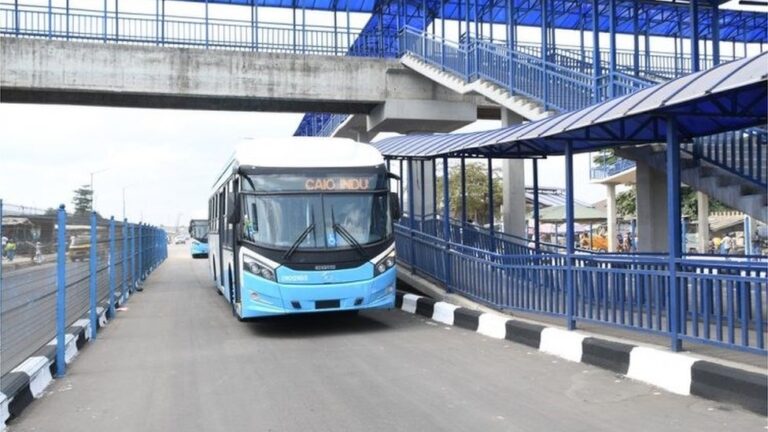Despite a reduction in fuel pump prices and the Federal Government’s promotion of Compressed Natural Gas (CNG) as an affordable alternative to petrol, Nigerians continue to face steep transportation costs, sparking widespread frustration among commuters and drivers alike.
Across Lagos, Ogun, and Oyo states, commuters lamented that transport fares have remained unaffordable and disproportionate, even as fuel prices dropped and new cost-saving energy options were introduced.
Fares Still 400% Higher Since Fuel Hike
According to interviews with 31 passengers, the surge in transportation costs began when the Premium Motor Spirit (PMS) price skyrocketed to ₦1200 per litre following President Bola Tinubu’s subsidy removal. Though prices have since eased and CNG was introduced as a cleaner and cheaper alternative, transport fares have not followed suit.
The National Bureau of Statistics (NBS) confirmed the trend, reporting that the average intercity bus fare rose from ₦3,994.51 in April 2023 to ₦7,122.57 in April 2024—a near 80% increase year-on-year. The report, however, notes a slight 0.43% month-on-month decrease from ₦7,152.97 in March 2024.
Drivers Blame Unions, Passengers Feel the Pressure
Commercial drivers pointed to multiple daily levies—booking, loading, and ticket fees—as significant contributors to fare hikes. These levies are reportedly enforced by transport unions and collected without proper regulation, putting financial strain on both drivers and commuters.
“We only work and give the money to fuel attendants, mechanics, and, most annoyingly, the transport unions,” said Adediwura Kazeem, a commercial driver. “Drivers are suffering in this country, and transport unions are getting fat.”
Passengers echoed his frustrations. Ayinla Idris, a small business owner, blamed high transport costs for the decline of his business, saying:
“Transportation on land plays a major role in Nigeria’s economy. But instead of noticing the President’s efforts, Nigerians continue to groan because the unions frustrate everything.”
He recounted being humiliated by transport union members for trying to intervene in a dispute between a driver and park officials.
Another commuter, Iyinola Aderibigbe, highlighted safety concerns, accusing transporters of overloading vehicles to compensate for union fees:
“They force more people on each seat just to make extra money, making the journey uncomfortable and dangerous.”
Calls for Government Intervention
There is a growing public demand for government action to regulate the commercial transport sector, which many believe is currently under the control of unregulated union leadership with ties to local authorities.
“These people collect fees daily without any accountability, and their actions directly affect the masses,” said Idris.
“The government must step in to end this exploitation,” added Kazeem. “Otherwise, both drivers and passengers will keep bearing the brunt of a broken system.”
Conclusion
While the introduction of Compressed Natural Gas and a reduction in fuel prices were intended to ease transportation burdens, the benefits have yet to reach everyday Nigerians. Without decisive government regulation and reform of union-controlled transport systems, the hope of affordable and fair public transportation may remain out of reach.

